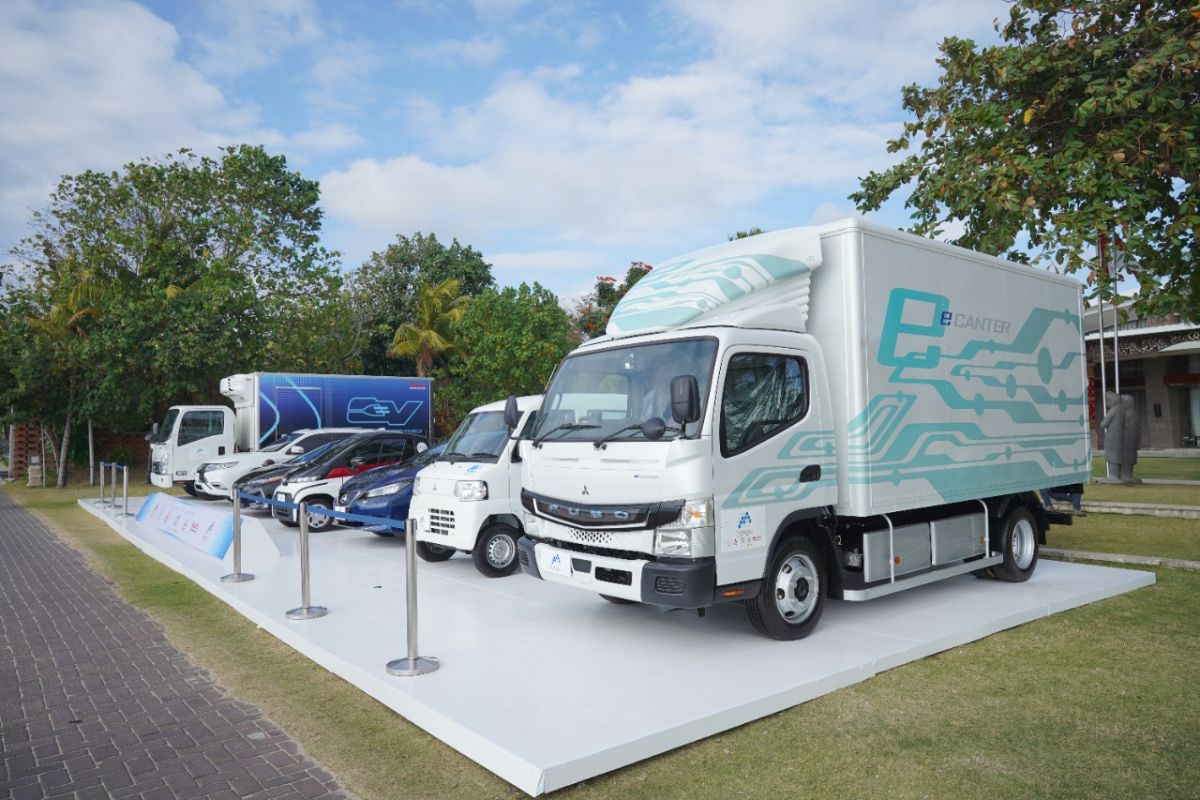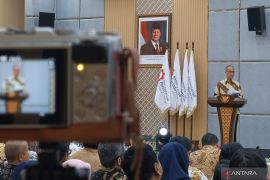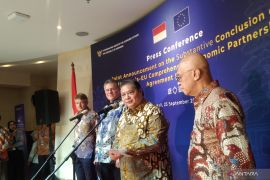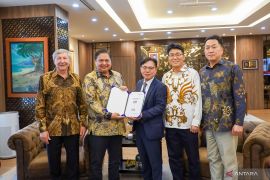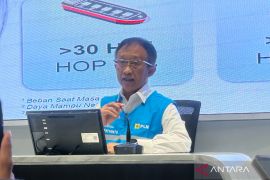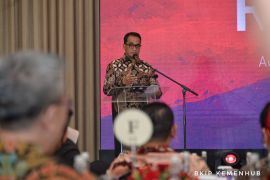In future, there may be other technologies that can provide better results or use renewable energyJakarta (ANTARA) - Indonesia's target of achieving net-zero emissions (NZE) in 2060 does not mean that all vehicles will be electric vehicles (EV), but rather, there will be other eco-friendly technologies, Industry Ministry's official, Dodiet Prasetyo, stated.
"In future, there may be other technologies that can provide better results or use renewable energy," he noted during the discussion of the Isuzu AC/DC Future of EV for Commercial Vehicles in South Tangerang on Tuesday.
"However, we still support EV development in Indonesia," he affirmed.
According to the Energy and Mineral Resources Ministry's website, NZE is a government project to reduce carbon released into the atmosphere, so that it does exceed the level of emissions that the earth is capable of absorbing.
Achieving this necessitates a transition from the currently used energy system to clean energy system to strike a balance between human activities and the environment.
Recently, the NZE program became a popular term after the Paris Climate Agreement was held in 2015. The program aims to reduce environmental pollution that potentially causes global warming.
Through this opportunity, the government has outlined five main principles to continue to encourage the utilization of eco-friendly vehicles.
These principles comprise increasing the utilization of renewable energy, reducing fossil energy use, increasing utilization of electric vehicles in transportation, increasing utilization of electricity in households and industry, and utilization of Carbon Capture and Storage (CCS).
Indonesia has prepared several regulations in order to realize electrification.
These regulations include Presidential Regulation No. 55 of 2019, Government Regulation No. 74 of 2019, Law No. 1 of 2002, Industry Minister Regulation No. 36 of 2021, and Industry Minister Regulation No. 6 of 2022.
Industry Minister's Regulation No. 28 of 2020 and Industry Minister's Regulation No. 7 of 2002 have also be readied.
These regulations stipulate several aspects starting from general policies to incentives and to development of the Battery-Based Electric Vehicle (KLBB) industry that includes vehicles' domestic component level (TKDN).
Related news: Observers outline electric vehicle challenges including dirty energy
Related news: Minister lauds Gaikindo exhibition presenting array of EV options
Related news: Governor highlights carbon emission-reduction efforts to ambassadors
Translator: Chairul Rohman, Fadhli Ruhman
Editor: Sri Haryati
Copyright © ANTARA 2022
